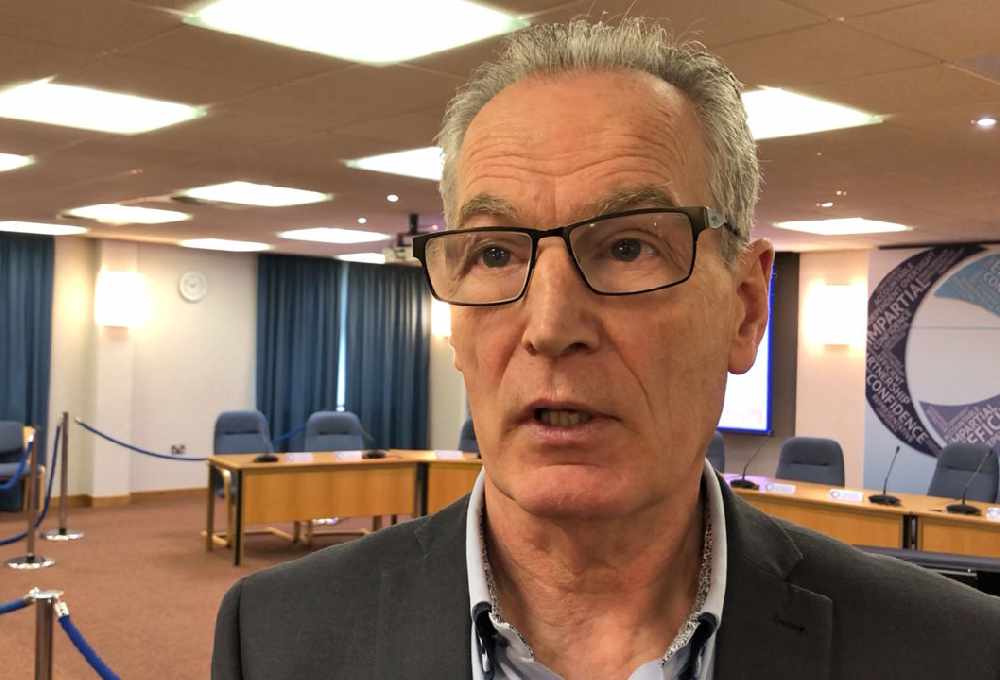
By David Young, PA
Policing board members have clashed after a DUP MLA referenced claims Pat Finucane was associated with the IRA.
Sinn Fein’s Gerry Kelly accused Mervyn Storey of trying to “blacken the name” of the late solicitor while SDLP member Dolores Kelly also raised objections.
The verbal exchanges unfolded during a board meeting that also heard PSNI chief constable reiterate the police’s belief that there were no new lines of inquiry in the Finucane murder case.
Simon Byrne, who said the first steps of a case review would start next week, also questioned the appropriateness of continuing to ask the police to deal with such controversial legacy probes.
He insisted it was hindering the service’s attempt to focus on policing present day Northern Ireland.
The board was discussing the UK Government’s decision this week not to hold an immediate public inquiry into the killing of Mr Finucane in 1989, a move branded an insult by the solicitor’s family.
Northern Ireland Secretary Brandon Lewis said he was not taking a public inquiry off the table but said further examinations of the case by police and the Police Ombudsman should conclude first.
Mr Finucane, 39, who represented republican and loyalist paramilitaries during the conflict, was shot dead in his family home in north Belfast in February 1989 by the Ulster Defence Association (UDA) in an attack found to have involved collusion with the state.
In his remarks on the controversy, Mr Storey told Mr Byrne the PSNI could not allow itself to be “bullied” into bumping the Finucane case up the queue of outstanding legacy investigations.
The North Antrim MLA described the murder as a “horrendous, terrible crime” and said the perpetrators needed to be brought to justice.
But he added: “Let’s remember that your former chief constable of the RUC the late Sir John Hermon said that Pat Finucane was associated with the IRA and he used his position as a lawyer to act as a contact between suspects in custody and republicans on the outside.
“Let’s remember also his brother broke out of the Maze and there is somebody on this board and in this room (Mr Kelly) who also was involved in that activity.
“And our thoughts are with the James Ferris (prison officer) family, who lost his life as a result of being stabbed and subsequently had a heart attack.
“But what I want to ensure is that there is no hierarchy of investigation, and that those many hundreds of people who have not got justice are not left on the sidelines again when focus is brought upon others.”

Mr Kelly branded Mr Storey’s comments an “absolute disgrace”.
“He should apologise to the family.
“He has often talked about victims here.
“And yet he has no such sensitivities when it comes to the Finucane family and he is adding to their distress by saying what he said and he is only saying it because a person who has passed away cannot be defamed in law or libelled.
“I am astounded that he would say that.”
Mrs Kelly urged Mr Storey to “reflect” on his remarks.
The SDLP representative was also highly critical of Mr Lewis’s handling of the Finucane case.
“I really do object to Mervyn’s comments,” she said.
“We want to see all victims to get to the truth and justice that they campaign for and that which they deserve.
“And we regret the fact, very much so, that the police have been brought in once again by the Secretary of State into the Finucane inquiry and the failure of the British government to uphold its international agreements and obligations, as the Supreme Court judgement reflected on.
“We think the Secretary of State has behaved woefully far short of anyone in public life in any level of integrity in relation to victims of the conflict.”
Commenting on the case, Mr Byrne said: “Overall it reminds us of the difficulties of policing the past and the pain and anger and suspicion that often goes with the investigation of legacy related deaths.
“It’s fair to say the previous investigations and reports satisfy us that there remain no viable lines of inquiry.
“We will begin the first step of a review process next week after careful consideration, but it’s also worth stressing that we’ve made it plain that this is a very complex case, that the remedies themselves are complex and strewn with practical difficulties.”
He added: “It’s a matter of public record what we’ve said time and again about there should be alternative means of dealing with these issues because they are complex, they are so emotive for all sorts of reasons and it’s an issue that we would prefer to face forward on, rather than having to continue to deal with issues from the past, important as they are.”


 Remains of 300-year-old building complex unearthed by chance on country estate
Remains of 300-year-old building complex unearthed by chance on country estate
 Fresh Met Office warning for icy conditions across Northern Ireland
Fresh Met Office warning for icy conditions across Northern Ireland
 Community still in shock over deaths of father and son, funeral told
Community still in shock over deaths of father and son, funeral told
 Hugo Duncan dedicates MBE honour to late mother who raised him on her own
Hugo Duncan dedicates MBE honour to late mother who raised him on her own
 Police concern over large gathering of youths at Belfast interface
Police concern over large gathering of youths at Belfast interface